Special Series (3):
Who the Hell Is Milei?
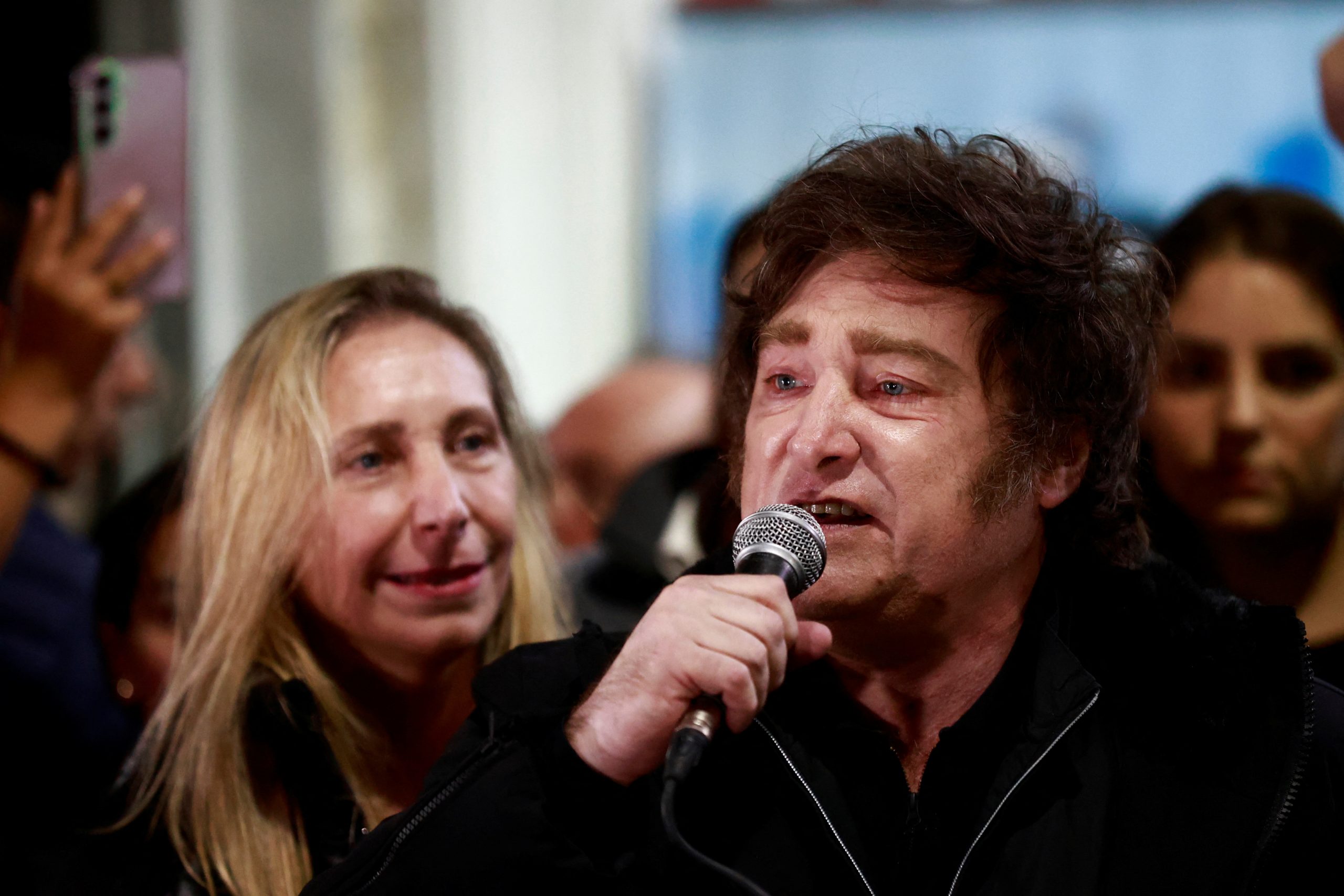
BUENOS AIRES, Argentina — In fall 2023, during a meeting with Argentine business leaders, presidential candidate Javier Milei turned to the head of a major company and asked, “You’re evading taxes, right?” The startled executive replied no. Milei pressed him again, then said with disappointment, “Tax evaders are heroes.”
Choi Do-Sun, chairman of appliance maker Peabody, witnessed the exchange. It showed Milei’s belief in hardline libertarianism, where government is seen as evil and taxes as theft. He describes himself as an anarcho-capitalist who advocates for a stateless society governed entirely by free markets and private contracts.
This paradox — a head of state who opposes the state — is at the heart of Argentina’s break from leftist populism.
A President Few Understand
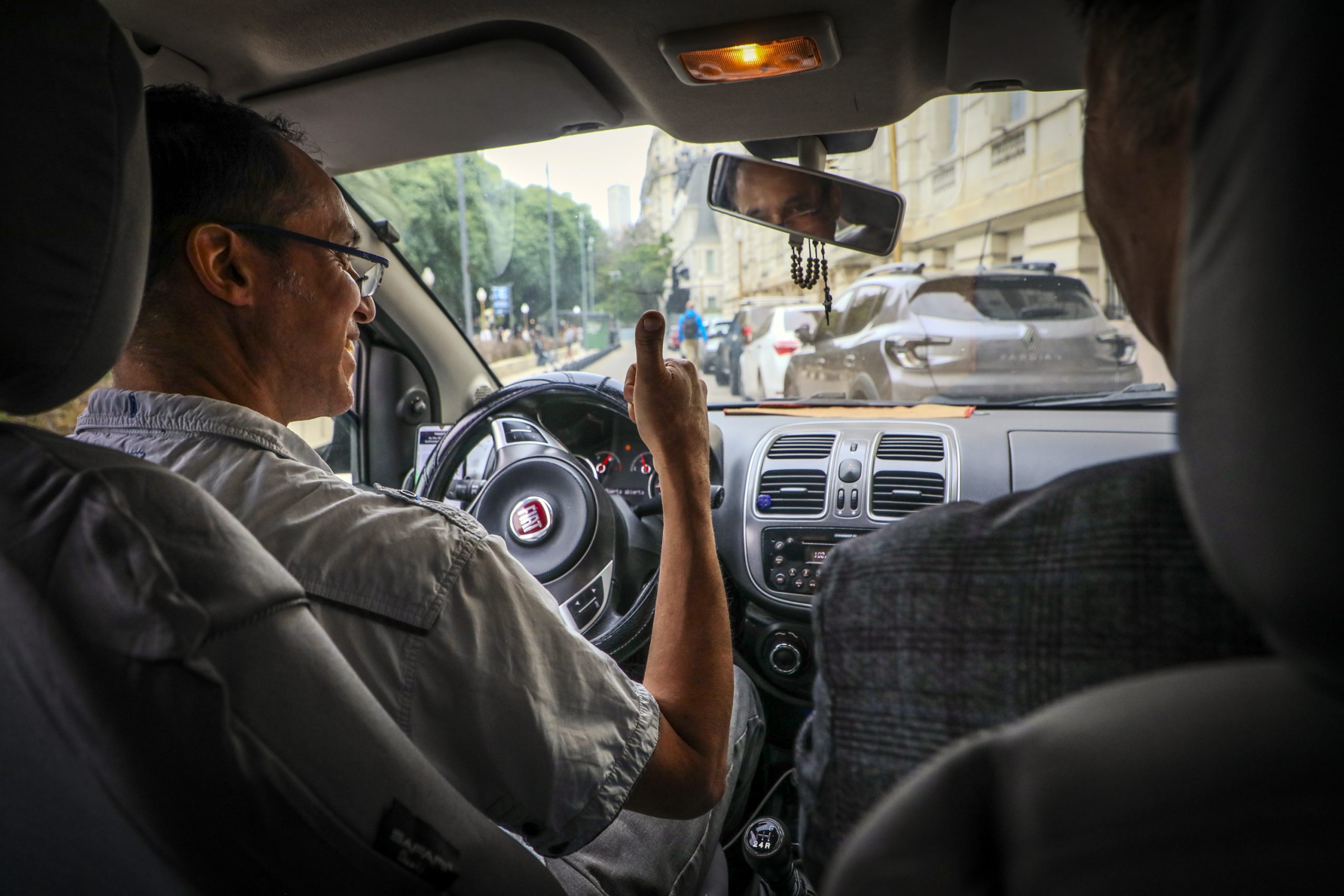
Even many Argentines know little about Milei, who entered politics suddenly and became president in just two years. Bookstores are filled with books about him, showing public curiosity. Hernán Romero, a bookstore employee at the University of Buenos Aires, said, “People buy them not because they like him, but because they want to understand him.” Readers are sharply divided. “There’s no middle ground,” Romero said.
Milei grew up in a middle-class home in Buenos Aires, often beaten by his abusive father. His sister Karina (52) always comforted him. He still depends on her, even for daily tasks like feeding his dogs. He calls her “the boss.” Today, she is his chief of staff, and along with adviser Santiago Caputo, the three form the “iron triangle” holding all the power.
Milei once sang lead in a rock band and played goalkeeper for a junior soccer team. After experiencing hyperinflation in the late 1980s, he decided to become an economist. He earned his degree at University of Belgrano and two master’s degrees at IDES and Torcuato Di Tella University (UTDT). He worked as chief economist at HSBC Bank and Maxima AFJP Asset Management, and taught at the University of Buenos Aires.
From TV Eccentric to President

In the mid-2010s, Milei became famous on TV for his aggressive tone, eccentric image, and rock star looks. He appeared in superhero costumes or used chainsaws on stage to grab attention. In November 2021, he entered the House of Representatives with the new Liberty Advances Party (LLA). Two years later, he became president.
As a congressman, he raffled off his entire monthly salary to citizens, saying he was returning stolen tax money to the people. The public loved it, while fellow lawmakers were shocked to see their own salaries exposed. Even his final paycheck in December 2023, worth 2.1 million pesos ($2,500), was raffled off.
His nickname is ‘El Loco’ (The Madman). People who know him say it fits. Guillermo Moreno (70), a former Minister of Domestic Trade (2006–2013) and hardline Peronist, said, “I met him many times. He’s crazy. He’s an anarchist who knows nothing. He lived alone in a small apartment with big dogs and spent his salary on them. When he came to my office, he devoured all the snacks. It’s funny, but having such a person as president is serious.
Devoted to Austrian School of Economics
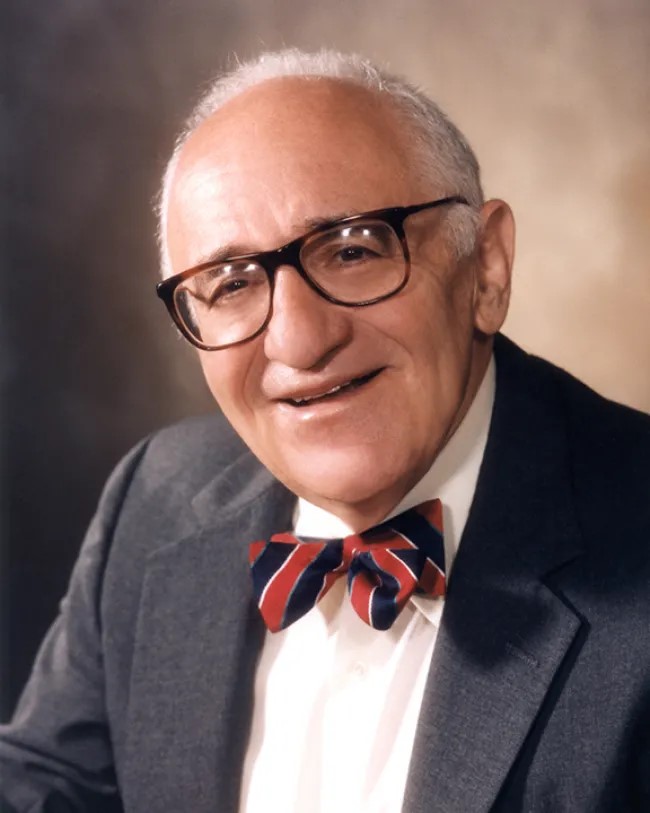
Milei says he found his path after reading Murray Rothbard’s “Man, Economy, and State”, embracing Austrian School of economics. This school, started by Carl Menger in 1871, argues that markets work best when left to individual choice and are harmed by government interference.
Critics in Germany mocked it as gossip from Vienna. It later evolved into libertarian economic theory, developed by Ludwig von Mises, Friedrich Hayek, and Rothbard.
Rothbard was the most extreme, calling for the end of the state itself. His ideas deeply influenced Milei’s belief in anarcho-capitalism.
Milei applies libertarianism to every part of his life. He named his dogs Milton (after Milton Friedman) and Murray (after Murray Rothbard). He jokes that his messy hair is styled by the “invisible hand of the wind,” referencing Adam Smith, though he actually hires a stylist to make it look like a mix of Elvis Presley and Wolverine.
In speeches, he shouts, “Long live freedom, damn it!” — sounding like a revolutionary attacking the ancien régime.
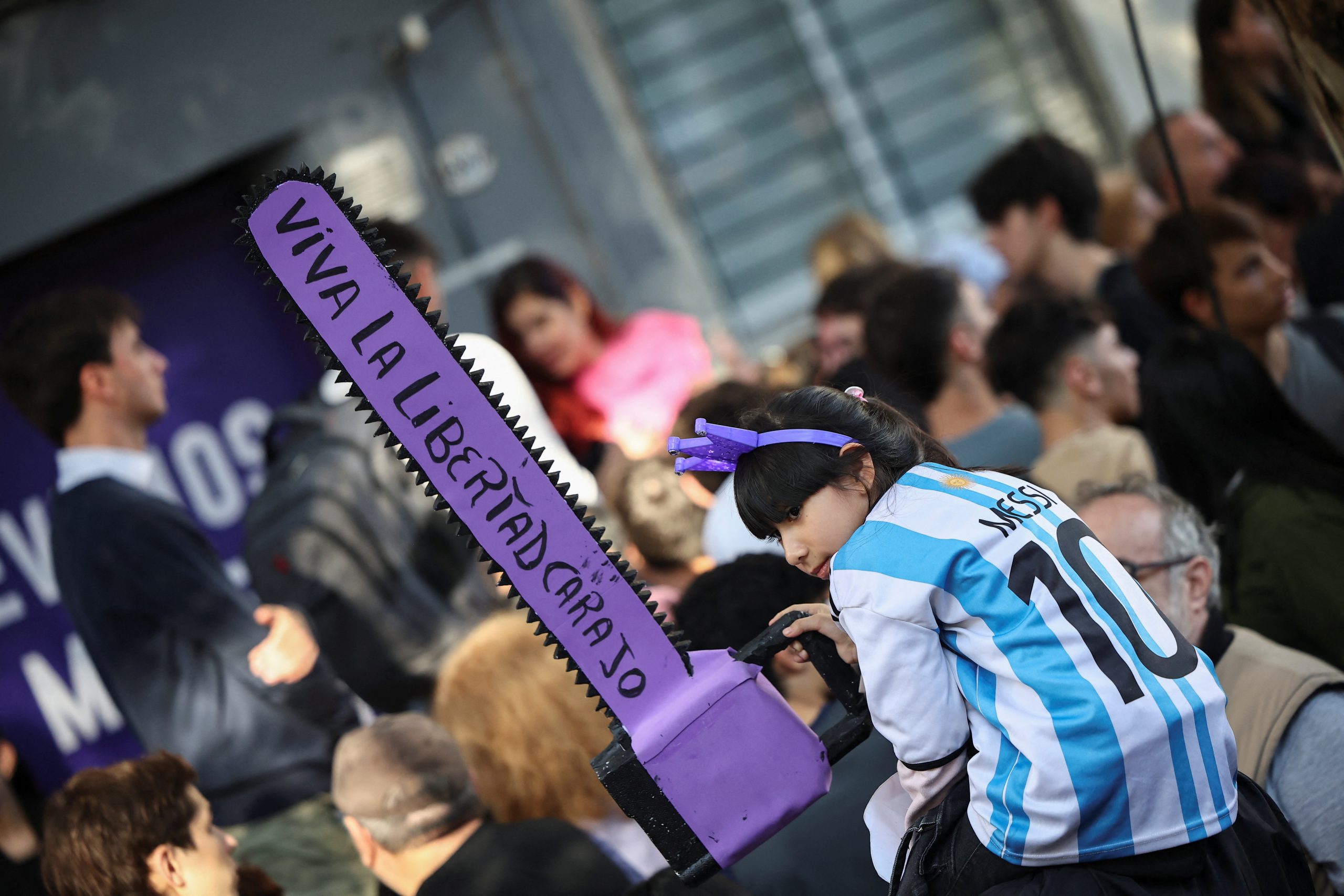
Anarchist in Office: Milei’s Paradox
Some explain Milei’s extreme anti-government stance as a reaction to his father’s abuse — a theory proposed by Argentine biographer Juan Luis González.
But how can an anarchist run a state? That is Milei’s paradox. He believes Argentina’s bloated state caused its economic collapse. His plan is to shrink the state and let the market handle most things. He entered politics to make this happen from inside the system — a mirror image of what Herbert Marcuse and Rudi Dutschke once urged the left to do in the 1960s: to march through the institutions and overturn the capitalist system from within. But Milei’s goal is the opposite.
Western media often call him a populist, but this is inaccurate. He appeals to the public directly, but his policies are the opposite of populism. He is cutting programs and demanding sacrifices, not offering benefits.
Some call him a far-right fascist, especially since Donald Trump named him his favorite foreign leader. His friendship with European far-right leaders adds to the image. However, Milei is not driven by racial or nationalistic resentment. He champions open markets, embraces trade, and seeks to dismantle a bloated state apparatus — hardly the hallmarks of fascism. His use of executive decrees stems from political necessity, not authoritarian ambition; he simply lacks a functioning majority in Congress.

A Surprisingly Pragmatic Side
Despite his image, Milei shows pragmatism. As a candidate, he criticized China’s Communist Party, but as president, he is managing relations carefully and planning a summit with Xi Jinping. Luciano Bolinaga, professor at Austral University, said, “Ahead of the G20 Summit, Milei softened his tone on China, showing he can’t ignore reality.”
When floods hit southern Argentina in March, he approved emergency relief, breaking from his usual austerity. He also toughened drug enforcement, showing flexibility beyond strict libertarianism. Liliana Franco, columnist at the Buenos Aires Herald, said, “Despite his beliefs, Milei is showing pragmatism.”
He also benefits from a weak opposition. Even without a legislative majority, the opposition is divided. Mariano Tommasi, political economist at University of San Andrés, said, “Many groups want to stop Milei’s reforms, but their interests differ. Plus, Milei remains popular, making aggressive opposition politically risky.”
Public frustration with populism, a hunger for change, and a fractured opposition have shifted the wind. Milei is the libertarian kite riding that wind to its highest point.
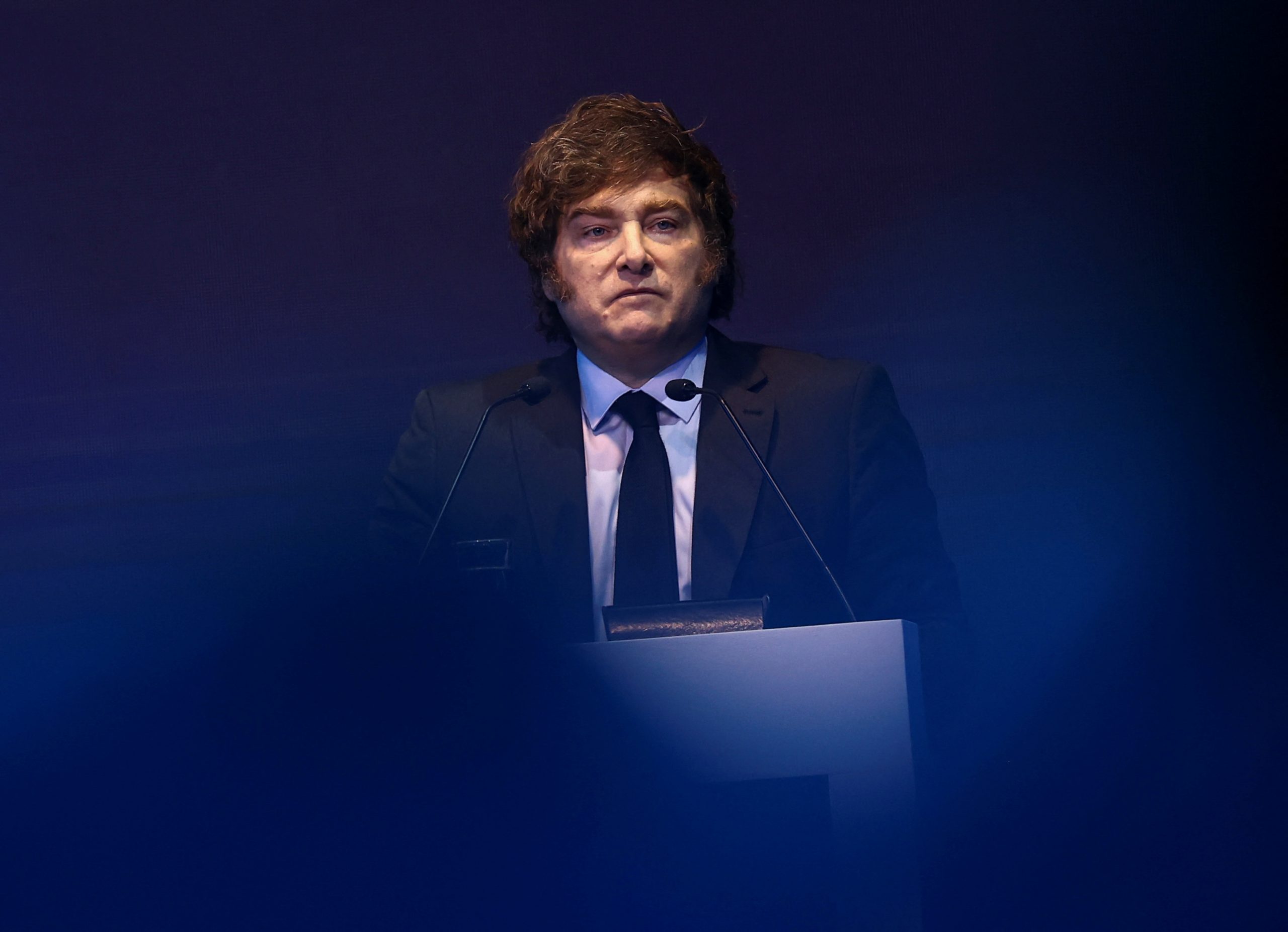
🔎 Special Series: The Rise and Fall of Argentina’s Economy
- Part 1: How Argentina Was Saved by ‘Chainsaw Reform’
- Part 2: The Fall of a Developed Nation a Century Ago
- Part 3: Who the Hell Is Milei?
- Part 4: [Coming Soon]
- Part 5: [Coming Soon]
BY YOONHO NAHM [yhnam@koreadaily.com]
AND YEOL JANG [jang.yeol@koreadaily.com]



![At One-Year Mark, Korean Americans Rate Trump’s Second Term Poorly U.S. President Donald Trump gestures as he and Canada's Prime Minister Mark Carney, not pictured, meet in the Oval Office at the White House in Washington on Oct. 7. [REUTERS]](https://www.koreadailyus.com/wp-content/uploads/2025/10/1008-Trump-100x70.jpg)